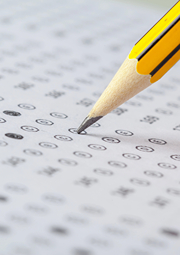Comprehensive Guide to TSA Preparation
The TSA is designed to test skills that are crucial for success in higher education, particularly at prestigious places like Oxford. We’re talking about critical and independent thought, reasoning, and the ability to analyze and solve problems—skills that go beyond rote memorization.
What is the TSA?
The Thinking Skills Assessment (TSA) is used by several UK universities to assess critical thinking and problem-solving skills. It’s been an integral part of the admissions process for courses like Economics, PPE (Philosophy, Politics, and Economics), and other social sciences for several years. The TSA provides a standardized measurement of your aptitude beyond just A-levels or other achievements.
The TSA has been in use for some time now—since the early 2000s, gaining traction as universities seek broader assessment metrics for applicants. It specifically came into focus at institutions like the University of Oxford, which deploys it for some of its famously competitive courses.
Checklist — Preparing for the TSA
1. Understanding the Format
The TSA typically includes multiple-choice questions assessing critical thinking, as well as an essay component (for some courses) covering problem-solving ability. Knowing the structure and types of questions you’ll face is crucial.
2. Self-Assessment and Practice Tests
Start by taking a practice test to assess your initial level. Websites and sample tests are abundantly available online, often free. Analyzing your performance will help identify strengths and weaknesses.
3. Focus on Weak Areas
Once the practice test identifies weak points, concentrate study efforts there. Work through problems slowly at first until you build confidence.
4. Critical Reading and Thinking Exercises
Engage with materials that challenge your perspective and analytical skills. Read academic journals, solve puzzles, or partake in debates to foster critical thinking.
5. Consider Courses and Resources
The TSA course that is specifically dedicated to the TSA test can be incredibly helpful, providing structured learning, resources, and feedback. However, whether to take a course depends on your personal study style and needs.
6. Hiring a Tutor
If you seek tailored one-on-one guidance, then a tutor could be beneficial, particularly one experienced with the TSA. They can provide directed assistance and feedback on your practice essays.
7. Mindset and Balance
Stay curious, and keep an open mind, adapting your strategies as you learn more about your strengths and areas of improvement. Balance in study avoids burnout and keeps your mind fresh.
In short, start with self-study using practice materials, focus on your weaker points, and then decide if a structured course or tutor is necessary. It’s all about finding that groove that keeps you engaged without feeling overwhelmed.
TSA Format Overview
The TSA comprises two sections, each with a unique focus.
Section 1: Thinking Skills
- Format: Multiple-choice questions assessing problem-solving and critical thinking skills.
- Number of Questions: Usually around 50 questions.
- Duration: 90 minutes.
- Computer-Based: Traditionally, the test has been paper-based, so make sure to check the latest format requirements as institutions occasionally update these details.
Section 2: Writing Task (required for some courses)
- Format: An essay task requiring you to construct a coherent argument.
- Duration: 30 minutes.
- Focus: This section evaluates your ability to formulate and articulate complex ideas and arguments clearly and concisely.
Time Management Tips
- For the multiple-choice section, you’ve got just under 2 minutes per question, so practice honing your quick decision-making and elimination skills.
- For the essay, focus on structure—introduction, main argument, counter arguments, and a strong conclusion should all fit within the 30-minute frame.
Finding Your Weak Areas
While tutors and coaches can certainly give personalized feedback, self-administered practice tests can also reveal patterns in what types of questions or topics you struggle with. Here’s how you can help identify those on your own:
![]() Compare your answers to previously provided solutions and analyze to grasp the logic behind the correct responses.
Compare your answers to previously provided solutions and analyze to grasp the logic behind the correct responses.
![]() Record questions you got wrong to see if there’s a recurring theme (like data interpretation or reading inferences).
Record questions you got wrong to see if there’s a recurring theme (like data interpretation or reading inferences).
![]() Regularly timed practices can help simulate test conditions, giving you a feel for pacing.
Regularly timed practices can help simulate test conditions, giving you a feel for pacing.
Study Approaches for Lasting Learning
Your body, mind, and spirit all play a role in preparing for something like the TSA. Let’s explore ways to make your study prep holistic and memorable, so it’s not just about passing the test but enhancing your life.
Active Learning Techniques
- Practice Retrieval: Regularly testing yourself on what you’ve learned helps reinforce memory.
- Spaced Repetition: Spread out study sessions over time to improve retention.
- Interleaving Practice: Mix different subjects or types of questions in a single session to improve your adaptability.
Mind Mapping
This visual tool can help you connect ideas and concepts, making them easier to recall.
Teach Back Technique
Teach what you’ve learned to someone else or even explain it out loud to yourself. Teaching is one of the best methods for cementing knowledge.
Mindfulness and Meditation
Incorporate meditation or yoga into your routine to reduce stress and improve concentration. Techniques like deep breathing can clear your mind and enhance cognitive function.
Cross-Training for the Brain
Engage in activities that stimulate different parts of your brain. Puzzles, strategy games, or learning a musical instrument can boost mental flexibility and problem-solving skills.
Blending self-study with structured courses and potential tutoring is a sound strategy. Think of it as assembling your own personal training regimen, tailored to your unique strengths and areas for growth. You’re the pilot of this academic flight, gauging when you need extra lift through a personalized tutor or when cruising along with a well-organized course is enough.
Diet for Cognitive Performance
Brain-Boosting Foods
- Omega-3 Fatty Acids: Found in fish like salmon, support brain health.
- Antioxidants: Blueberries, nuts, and dark chocolate help protect brain cells.
- Leafy Greens: Spinach and kale are packed with nutrients like Vitamin K and folate.
Stay Hydrated
Dehydration can impair attention and long-term memory, so drink plenty of water.
Balanced Meals
Don’t skip meals. Balanced nutrition keeps your body and brain fueled. Go for whole grains, lean proteins, and a mix of fruits and veggies.
Limit Sugar and Caffeine
While tempting for a quick energy boost, too much can lead to crashes and hinder focus.
Incorporating these practices into your TSA prep not only primes you for test success but also enriches other aspects of life. Mindfulness can help keep you centered under stress, a nutritious diet supports daily energy levels, and active learning techniques enhance any new skill acquisition.
Keep analyzing, keep practicing, and keep reaching upwards. Your preparation journey is your own creative symphony, and you’re conducting it with poise and precision.





